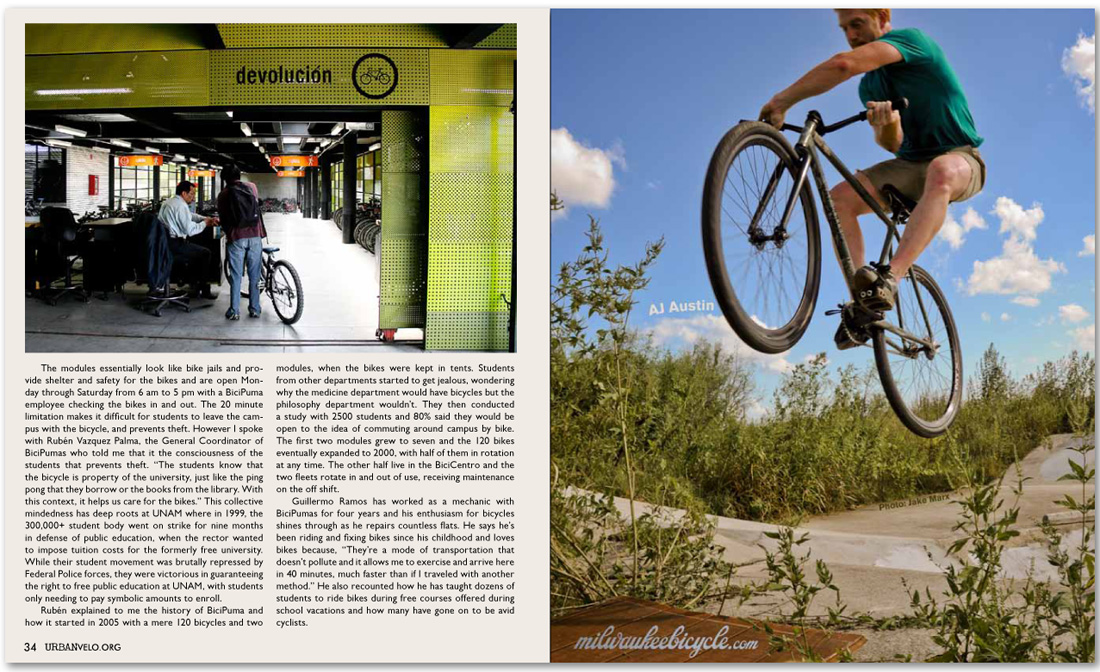


The modules essentially look like bike jails and provide shelter and safety for the bikes and are open Monday through Saturday from 6 am to 5 pm with a BiciPuma employee checking the bikes in and out. The 20 minute limitation makes it difficult for students to leave the campus with the bicycle, and prevents theft. However I spoke with Rubén Vazquez Palma, the General Coordinator of BiciPumas who told me that it the consciousness of the students that prevents theft. “The students know that the bicycle is property of the university, just like the ping pong that they borrow or the books from the library. With this context, it helps us care for the bikes.” This collective mindedness has deep roots at UNAM where in 1999, the 300,000+ student body went on strike for nine months in defense of public education, when the rector wanted to impose tuition costs for the formerly free university. While their student movement was brutally repressed by Federal Police forces, they were victorious in guaranteeing the right to free public education at UNAM, with students only needing to pay symbolic amounts to enroll.
Rubén explained to me the history of BiciPuma and how it started in 2005 with a mere 120 bicycles and two modules, when the bikes were kept in tents. Students from other departments started to get jealous, wondering why the medicine department would have bicycles but the philosophy department wouldn’t. They then conducted a study with 2500 students and 80% said they would be open to the idea of commuting around campus by bike. The first two modules grew to seven and the 120 bikes eventually expanded to 2000, with half of them in rotation at any time. The other half live in the BiciCentro and the two fleets rotate in and out of use, receiving maintenance on the off shift.
Guillermo Ramos has worked as a mechanic with BiciPumas for four years and his enthusiasm for bicycles shines through as he repairs countless flats. He says he’s been riding and fixing bikes since his childhood and loves bikes because, “They’re a mode of transportation that doesn’t pollute and it allows me to exercise and arrive here in 40 minutes, much faster than if I traveled with another method.” He also recounted how he has taught dozens of students to ride bikes during free courses offered during school vacations and how many have gone on to be avid cyclists.